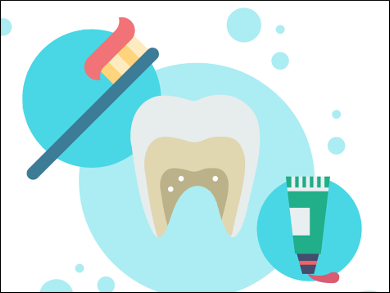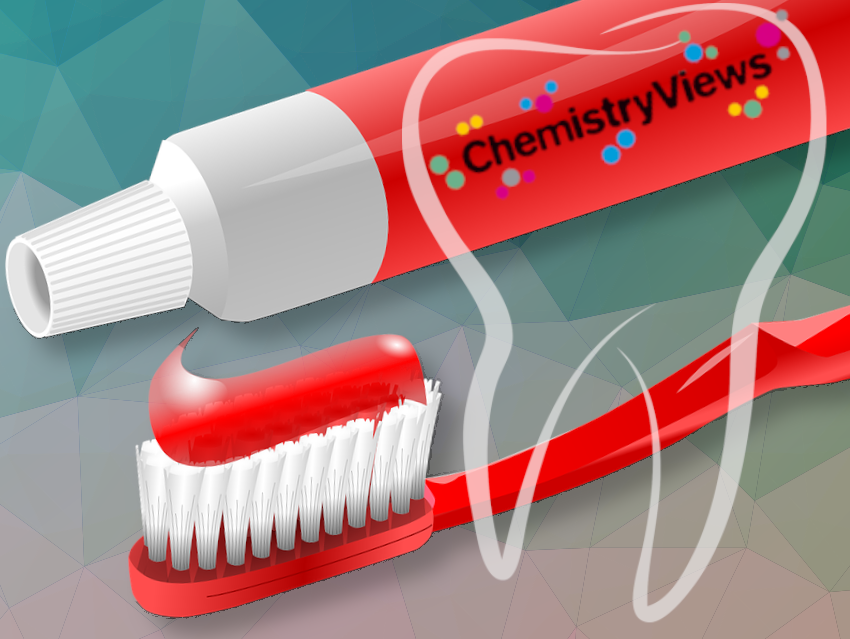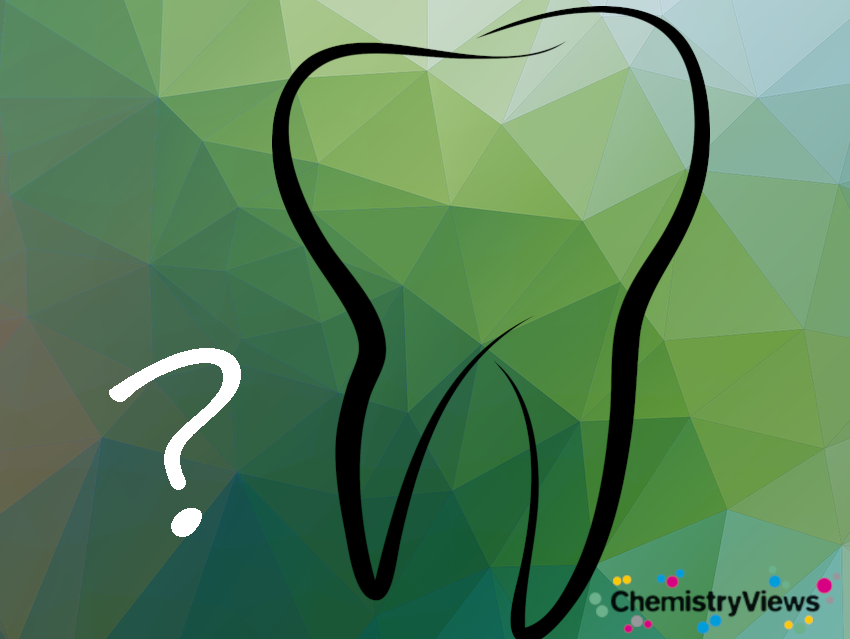Congratulations! Your answer is correct.
The mineral phase of our teeth is primarily composed of hydroxyapatite, Ca5(PO4)3(OH). Often the naturally occuring mineral is written as Ca10(PO4)6(OH)2 to denote that the crystal unit cell comprises two entities.
Enamel
Dental enamel consists of micrometer-sized, needle-like hydroxylapatite crystallites organized parallel to one another in crystallite bundles. It contains ca. 97 % mineral components and only ca. 1.5 % organic matrix content, such as proteins and lipids, and ca. 1.5 % water. Its exceptional hardness, attributed to a high mineral content and specific microstructure, makes dental enamel the hardest substance in the human body.
Dentin
 The other important material, dentin, is a bone-like biomineral. It consists of nanometer-sized hydroxylapatite crystallites enclosed in collagen fibrils (a few hundred nm in diameter). Dentin is honeycombed with characteristic micrometer-thin canals, known as dentin tubuli, oriented radially from the interior nerve outward to the dentin/enamel boundary. The dentin tubuli are surrounded by a highly mineralized ring of hydroxyapatite (shown on the right as a white circle and black ring).
The other important material, dentin, is a bone-like biomineral. It consists of nanometer-sized hydroxylapatite crystallites enclosed in collagen fibrils (a few hundred nm in diameter). Dentin is honeycombed with characteristic micrometer-thin canals, known as dentin tubuli, oriented radially from the interior nerve outward to the dentin/enamel boundary. The dentin tubuli are surrounded by a highly mineralized ring of hydroxyapatite (shown on the right as a white circle and black ring).
The organic fraction, primarily collagen, is significantly higher in dentin than in dental enamel (ca. 20 %). Dentin’s water content is approximately 10 %.
Reference
 Focus: The Chemistry of Dental Care
Focus: The Chemistry of Dental Care
What teeth are made of and the causes of tooth decay, how to brush your teeth and how toothpaste works, and why fluoride is good for your teeth
Also of Interest

The way our teeth are made, dental care, cavities, fillings and dentures all have something to do with chemistry—a compilation of articles and quizzes on chemistry related to teeth




